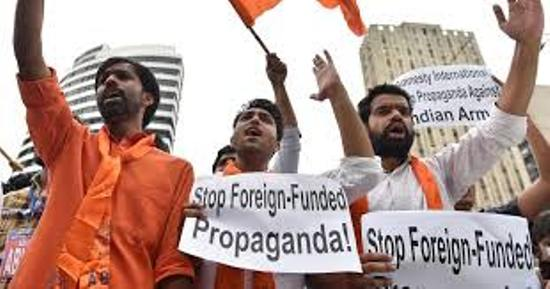ANY TYPE OF GOVERNMENT-FUNDING TO NGOSs’ SHOULD BE STOPPED

Bureau,Odishabarta
DELHI:It refers to surprise inspections conducted by students and alumnae of institutions like the Indian Institutes of Technology (IITs), Delhi University (DU) and Tata Institute of Social Sciences (TISS) on government-funded organisations that claimed to be working for public welfare have thrown up evidence of widespread and systemic abuse.
Earlier also Intelligence Bureau report indicated about misuse of Indian NGOs for anti-national agenda by foreign-contributors where it was revealed that India GDP has been adversely affected to big extent of 2-3 percent through such foreign-funded NGOs. Many NGOs are said to have been funded for cultural evasion in India. Foreign-funded NGOs spend in rupees and receive funds in dollars by sending these foreign-contributors exaggerated photos and videos of events to get huge foreign-funding. Many NGOs are tools to divert foreign-funds of individuals. It may be some foreign powers may be funding Indian NGOs with aim of disruption in governance to destabilise the country.
Siphoning of government-funds for NGOs run by influential ones in political and bureaucratic circles in name of their family-members should be prevented by stopping any kind of direct or indirect funding of NGOs at public-expense including from funds at discretion of Parliamentarians and state-legislators. These NGOs pay lucrative salaries and perks to its officers who are either relation to power-filled politicians and bureaucrats, or of persons running these NGOs. Buildings built on land allotted on concessional rates to NGOs should become government-property because of large-scale funding already done to these NGOs by the government. According to a study-report, India has an NGO for every 400 citizens, where NGOs are mainly used as some business-shops by those owning these. Any provision of tax-exemption for donations made to NGOs should be abolished. However in the meanwhile all NGOs should be under purview of Right-To-Information (RTI) Act and also of Lokpal.
Input;Ms.Madhu Agarwal






